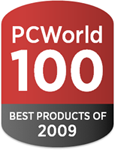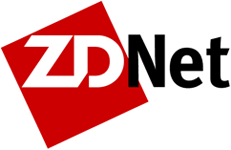Apple and Amazon could be the best of enemies. Look at their entirely complimentary business strategies. Amazon sells content. The company went into the hardware business to spur more e-book sales. It intends to make a killing selling e-textbooks for the new
Kindle DX. Yeah, sure, Amazon makes money on the
Kindle, but its heart is in the books. Apple sells hardware. Apple became the world's leading online media store so it could sell more iPods. Its heart is in the iPods.
Enter the iPad. The Apple people usually complain about how much they hate a product category just before they enter it. Recently, Apple's COO Tim Cook said that he thinks netbooks are pretty useless, and that the iPod touch is Apple's netbook. This feeds into BusinessWeek's rumor about the "iPad"—a $699 tablet that would look like a bigger iPod touch
Apple hates netbooks because netbooks cannibalize notebooks. But the company would love to sell another Apple device into homes. The iPad doesn't replace anything Apple currently sells. You type on your laptop at your desk. You surf with your iPhone while on the go. But you'd relax with an iPad on the couch, prop it up by your bed, or rest it on the airplane tray table. That's all stuff you do with existing devices, of course, but an iPad would make it more natural, just as a Kindle does.
The Kindle's success doesn't come from its brilliant hardware. Yes, the new Kindles are much prettier and slimmer than the original Kindle, but they're compelling because of their 3G networking and their tight integration with Amazon's store. Apple has that integration, too, via the iPhone Kindle app, and it has a much deeper legacy of building multipurpose hardware than Amazon does.
The Kindle DX seems to have three primary markets: textbooks, newspapers, and magazines. Other companies, including Hearst and News Corp., are said to be going into the media pad space to save their magazine subscription dollars. They're doomed. In exchange for your monthly contract, the iPad will give you the whole Internet, and 35,000 iPod touch applications, including—get this!—the Amazon Kindle application.
Amazon won't stress out about this too much. It will still be selling e-books, and now it will be selling e-textbooks, too. The big losers will be newspapers and magazines that hope to sell Kindle subscriptions. They'll be forced to put their free Web sites behind a pay wall or find some other way of making money. Textbook companies and traditional book publishers aren't in so much danger, because they've never offered all of their content online free.
The iPad also won't just be an e-book/Internet reader. It's sure to be a terrific media player—a sort of widescreen iPod, the perfect thing for watching a movie in bed or on the plane. Apple won't position it as a general-purpose computer, as the company doesn't want to cannibalize its MacBook business.
Don't worry too much about the iPad's $699 price. Apple has been open to carrier subsidies, which typically shave $200 or more off the price of a device in exchange for locking you into a contract. That business model has been tremendously successful—so successful that unlocked phones, while available in the U.S., have never been able to take off. Apple has also always had strong relationships with colleges and universities, so we're sure to see educational discounts to promote the iPad as a virtual textbook.
The iPad's monthly fee will be a sticking point, of course, but it's not an insurmountable one. Verizon's new Open Development Initiative has been letting makers of non-voice devices roll their own service plans. The ODI hasn't been used for a big consumer device yet, but it could let Apple roll out an iPad with bucket plans for data at various tiers; an on-device data meter could tell people when it's time to buy more. So far, the ODI hasn't been compatible with subsidies, but Verizon seems to be very enthusiastic about working with Apple; maybe together they could make this work.
The big question is whether Apple will release an iPad at its next big press event on June 8, or whether it will decide to wait. Typically, Apple announces products in June, September-ish and January-ish. It will announce the iPad when it's ready, whenever that is. But Amazon and the magazine companies shouldn't just be preparing competing devices: They should be preparing new business models for the new world where anyone can access Web content on a large-format pad, anywhere, at any time.
this articale written by Sascha Seganwhich you can find at http://www.pcmag.com/article2/0,2817,2346545,00.asp







If you do buy this, be sure to attach it on the key chain next to your Iamakey thumbdrive.
Soon all of my credit cards with be waveable from a keychain fob too - then we'll really live off of them - especially since you can hack your front door to unlock with a keychain fob - and these days, many cars unlock while it sits in your pocket.
Ultimately I guess we'll just have one tiny consolidated chip implanted in our wrist when we turn 16. Reply
We hate you.
Love,
Consumers who are forced to buy a "special" iPhone/iPod converter when the device could be designed to use microUSB Reply
Start a new discussion